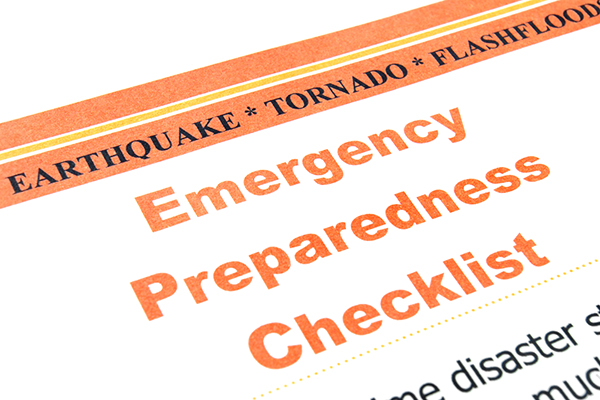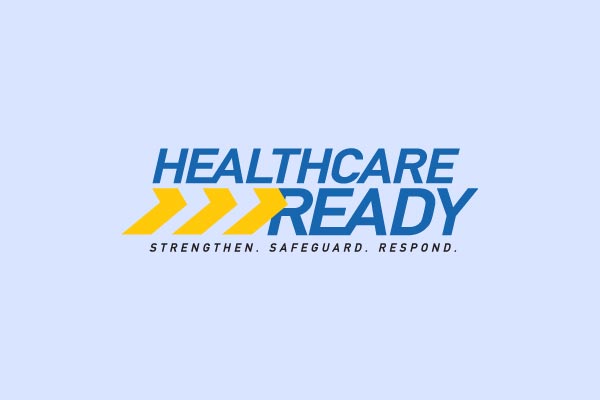How to Prepare Your Meds for Emergencies like COVID-19
*List of state waivers below updated March 17, 2020*
As the number of COVID-19 cases across the US steadily increases, concerned Americans have been stocking up on food and supplies. While you plan for the unexpected, remember to include your prescription medications as an essential part of your preparedness routine. This blog provides information and tips for addressing your prescription medications in your preparedness planning.
During emergencies, states may choose to issue waivers (known as “refill-too-soon” waivers) on these prohibitions, thus allowing pharmacists to refill prescriptions early.
How can emergency prescription refill waivers help you?
An emergency refill allows you – if necessary to do so – to refill your prescription before it’s due for a refill, so that you can be fully stocked with your medications before an emergency, like the COVID-19 outbreak, arises.
How do the “refill-too-soon” waivers work?
An emergency prescription refill waiver allows for the dispensing of a prescribed medication without the original providers’ authorization. This means the pharmacists can provide an earlier refill if they deem the medication to be critical to saving the patient’s life or maintaining their treatment plan.
Who issues these waivers and how can you find out if they
have been issued for your state?
State Boards of Pharmacy issue these refill waivers after a declaration of a public health emergency is issued by federal, state, or local government, such as the US Department of Health and Human Services or your governor. Some state laws and/or regulations have existing provisions that allow for emergency refills to go into effect when appropriate.
- Follow your local health department on social media to see if they post about the waiver.
- Follow our team (@HC_Ready) and as we post these waivers when they are issued.
- During emergencies, check our website (www.healthcareready.org) for event-specific emergency prescription information.
- Check your state Board of Pharmacy website.
- Call your pharmacy and insurance providers to ask about emergency refills.
- These states have prescription refill waivers in place right now:
- Washington: Insurers in Washington are mandated to allow one-time early refills of prescriptions until May 4, 2020.
- Colorado: Insurance companies must cover an additional one-time early refill of any necessary prescription medications.
- Florida: Pharmacists may dispense up to a 30-day emergency refill of maintenance medication.
- Maryland: Health insurers are required to waive any time restrictions on prescription drug refills and authorize payment to pharmacies for at least a 30-day supply of medication.
Are these laws the same in every state?
No, they vary. Depending on the state your pharmacy is in,
the waivers may allow for emergency refills for a 48-hour supply, or all the
way up to 90-day supply. Find
the specific law for your state here.
What if my state doesn’t have an emergency refill waiver
in place?
There are steps you can take to prepare your prescription
medications, even if waivers are not in place. These include:
- Stay up-to-date with your prescriptions, refilling
them as soon as you are able. Refilling and picking up your
prescriptions as soon as they’re available is an important strategy for
making sure you have as much medication on hand as you’re able. Some insurers
and pharmacies allow you to set up automatic refills, 90-day refills, or
mail-order or delivery of prescription medications. - Talk to your provider and pharmacist about
setting up an emergency plan that works for your treatment. These healthcare
providers are the best source of information for options that may allow for
early refills, such as vacation overrides or short-term refills such as 7-day
emergency refills. - Contact your insurance provider to
determine your options and the kind of assistance they provide. Call the number
on the back of your insurance card and ask for information on exemptions that
may be in place or could be put in place.
What if my prescription medication is a controlled
substance?
If your prescription medication is a controlled substance, like many common painkillers and medications for mental health conditions, you should work with your healthcare provider on an emergency plan. Read more here on the complexities of dispensing controlled substances.
Use healthcare experts as your first source of information. This blog is intended to explain how emergency refill waivers can help you during a disasters but should not replace medical advice from a qualified healthcare professional. Always check with your healthcare provider, pharmacist, and insurance provider first to determine a plan for upkeeping your health during a disaster.







